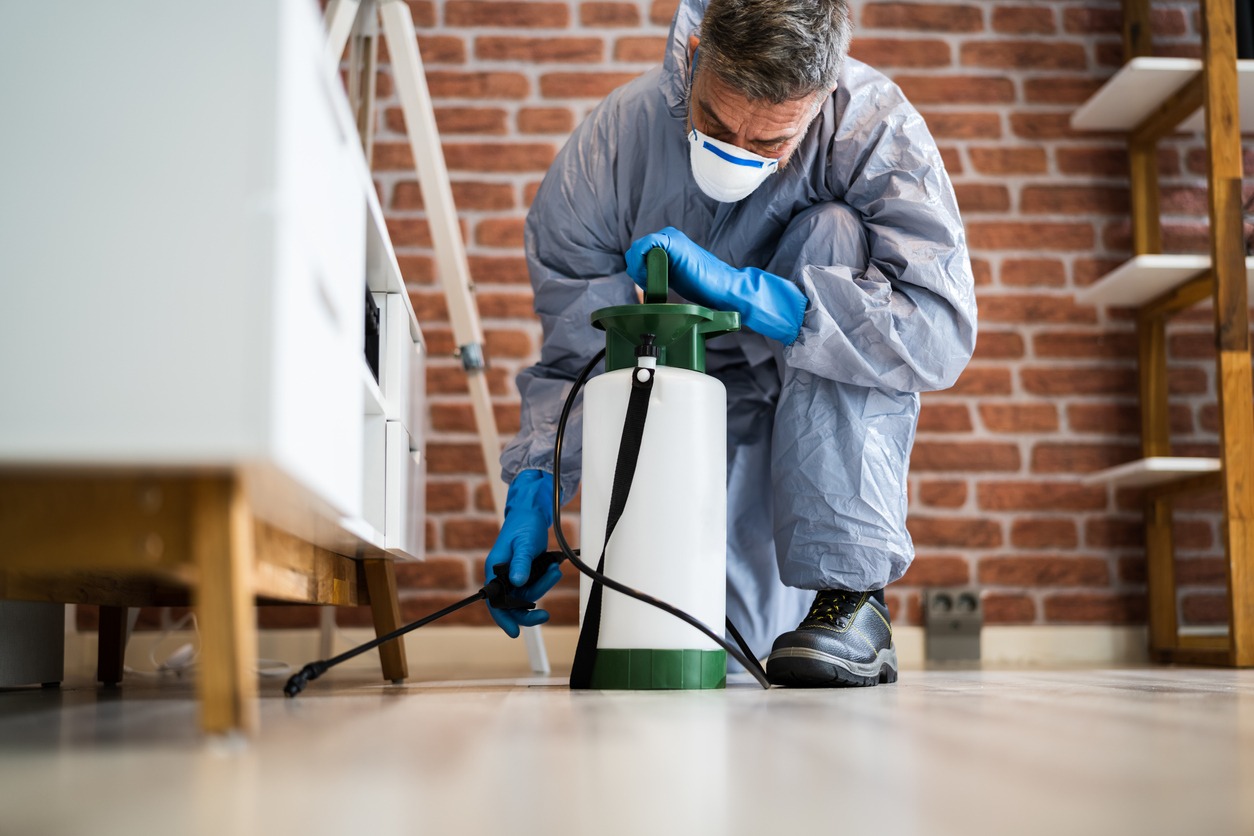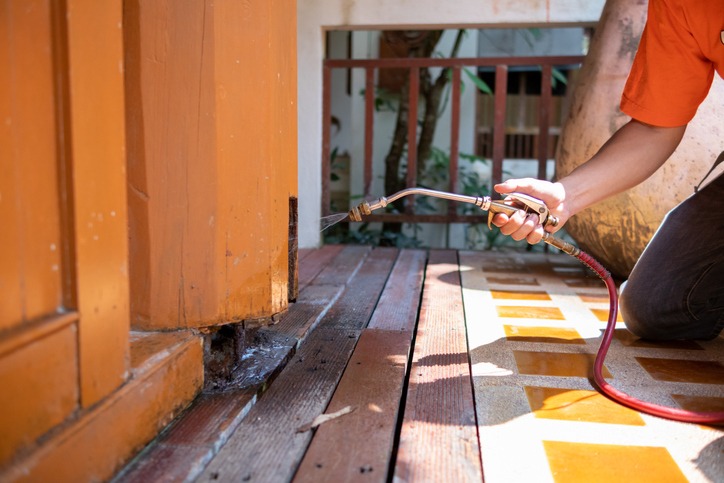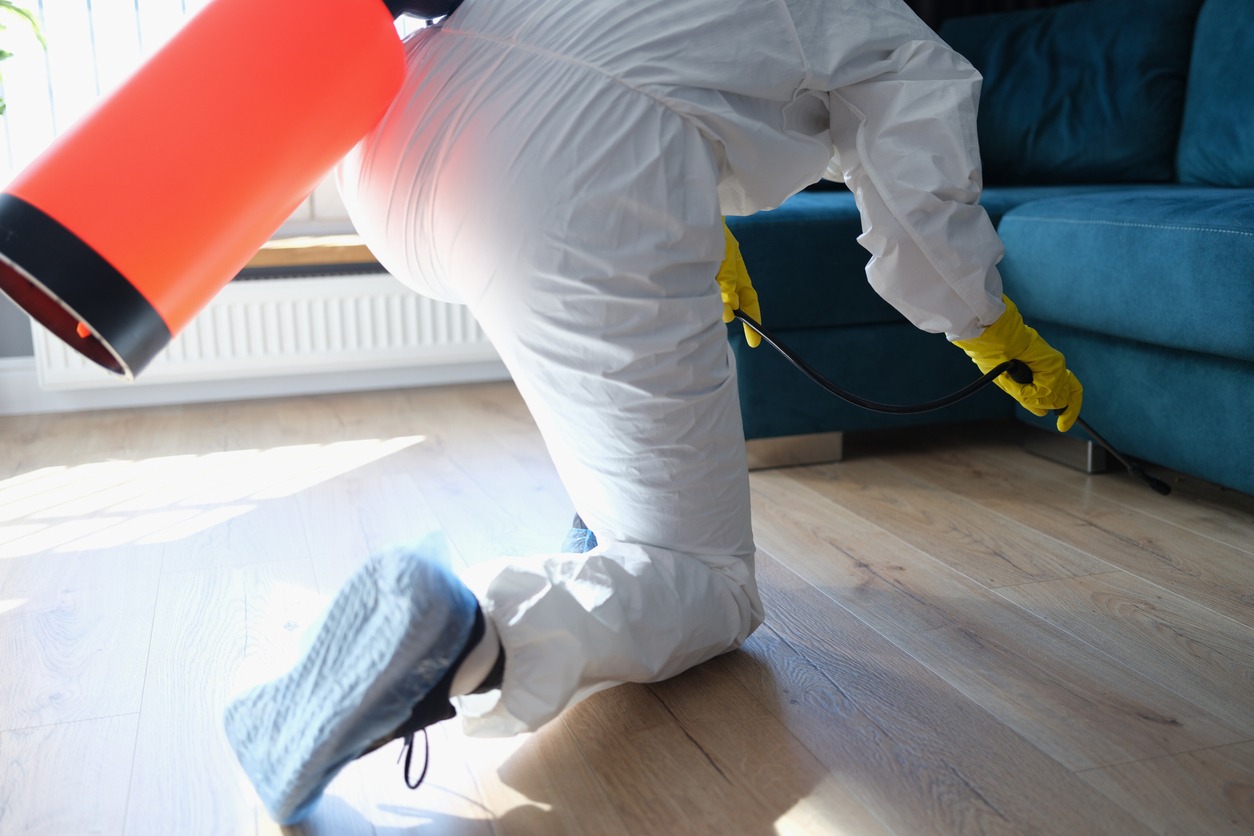Pests can often be difficult to deal with on your own, especially if they have already lived in your house for months or years. Fortunately, there are home pest control services that you can hire so that you can easily get rid of pests in your home while saving time and effort.
There are already hundreds of different businesses that offer home pest control, and in your area, there may be dozens to choose from. When hiring a home pest control service, it’s important to ask questions to ensure that you choose a reputable and effective provider. Here are 20 questions to consider:
Are you licensed and insured?
The first thing that you need to make sure of is if the pest control company is licensed to operate in your area and if they have insurance coverage. Asking questions about the company’s license and insurance can allow you to assess if they are trustworthy to hire.
Are your technicians certified and trained?
Make sure that the technicians are properly trained and certified to handle pest control treatments and processes. There are licenses and permits that technicians and contractors need to get before they can legally perform pest control on properties. Check out below for more details on these permits or licenses.
- Pesticide Applicator License – In many regions, technicians or companies engaged in the application of pesticides are required to hold a pesticide applicator license. This license demonstrates that the applicator has received training and is knowledgeable about the proper use of pesticides.
- Environmental Permits – Depending on the type of pesticides used and their potential environmental impact, technicians or contractors may be required to get environmental permits. This is more common for larger-scale pest control operations or those dealing with agricultural pests.
- Certification for Integrated Pest Management (IPM) – Some regions require certification in Integrated Pest Management or IPM, which emphasizes environmentally sensitive and sustainable pest control practices.
What types of pests do you specialize in treating?
Confirm that the company has experience dealing with the specific pests you are dealing with, whether it’s rodents, insects, termites, etc.
What methods and products do you use for pest control?
Ask about the types of pesticides or treatment methods they use and whether they are safe for children and pets. This is important to ask, especially if you have pets or children inside the house that may be affected by the smell or the chemicals used for the pest control process.
Here are some of the methods that technicians can use for home pest control:
- Baiting – This is a common method for controlling insects and rodents. Technicians place baits containing toxins that pests consume and then carry back to their nests, effectively reducing the population.
- Trapping – For this method, traps are used to capture and remove pests. This method is common for rodents and larger pests. Humane traps are often used when the goal is to relocate the captured animals.
- Chemical Pesticides – Insecticides and rodenticides are chemical substances used to kill or repel pests. Pest control technicians may apply these substances in targeted areas, focusing on places where pests are likely to be present.
- Insect Growth Regulators (IGRs) – IGRs disrupt the life cycle of insects, preventing them from reaching maturity and reproducing. This is an effective method for long-term pest control.
- Heat Treatment – Heat treatments involve raising the temperature in an infested area to levels that are lethal to pests. This method is effective for bed bug control and some other pests.
- Fumigation – Fumigation is a process in which a structure or area is sealed off, and a fumigant gas is introduced to eliminate pests. This method is used for severe infestations but requires careful handling.
Do you offer non-toxic or eco-friendly pest control options?
If you have concerns about traditional pesticides, inquire about environmentally friendly or non-toxic alternatives. There are plenty of pest control companies that offer eco-friendly options, so you wouldn’t have trouble finding one in your area.
Can you provide references or customer testimonials?
Request references from previous clients or look for customer testimonials to gauge the company’s reputation. You may also want to check reviews online about the effectiveness of the company’s pest control process, as well as how well they respond to customer feedback.
How long have you been in business?
A company with a longer history in the industry may have more experience and a proven track record. However, there is nothing wrong with hiring a relatively new company, although you may need to check reviews and feedback about the company first before getting their services.
What is your approach to integrated pest management (IPM)?
Integrated Pest Management or IPM is a comprehensive approach to pest control, as it provides not only pest removal but also maintenance and prevention so that the pests won’t return to your home. Ask about the company’s strategies for prevention, monitoring, and control when it comes to different kinds of pests.
Do you offer a warranty or guarantee on your services?
Inquire about any warranties or guarantees offered for their services and what they cover. If ever there are issues that arise while the pest control process is ongoing, a warranty provided by the company can be used to fix the issues.
Can you provide a detailed estimate for the job?
Ask for a written estimate that outlines the scope of the work, costs, and any additional charges. Written estimates ensure that the bill wouldn’t change unless the pest control technicians require additional expenses for the project.
What is your treatment plan for recurring pest issues?
Discuss how the company handles ongoing or recurring pest problems and whether they offer regular maintenance services.
Do you have experience with pest problems similar to mine?
If you have a specific pest issue, ask if the company has experience dealing with similar situations. If they don’t, they still may have plenty of skills and knowledge in handling the pest issue that you have at home, as long as they have years of experience in dealing with the pests that you want to get rid of.
How do you determine the extent of a pest infestation?
Understand the company’s process for inspecting and assessing the severity of a pest problem. Having a better understanding of the extent of a pest infestation will allow you to assess if it requires maintenance.
What safety precautions do you take during treatments?
Inquire about safety measures taken by the pest control technicians to protect your family, pets, and the environment during and after the pest control process.
Do you provide a written treatment plan and schedule?
Request a written plan that details the steps involved in the treatment and the expected timeline. Much like written estimates, a written plan ensures that the company or the technicians wouldn’t change plans quickly without your permission.
How often should I schedule follow-up treatments?
If follow-up treatments are necessary, ask about the recommended frequency and any associated costs.
Are there any specific preparations I need to make before treatment?
Get information on any steps you need to take before the pest control treatment, such as moving furniture in specific areas or covering food. Take a look below for more steps when it comes to preparing your property before treatment.
- Wash Bedding and Linens – for bed bug treatments, wash bedding, linens, and curtains in hot water. Seal them in plastic bags until the treatment is complete.
- Vacuum Specific Areas – in some cases, vacuuming before the treatment can help remove pests and debris. However, follow the pest control company’s specific instructions before performing any vacuuming.
- Pet and Children Precautions – remove pets and children from the treatment area, following the pest control company’s recommendations for the duration of the treatment.
- Clear Communication on Pest Issues – Clearly communicate issues you are experiencing with pests in specific areas of the property. This information helps the technician select the most effective treatment methods for the specific pests.
What is your policy on retreatments if the pests return?
Clarify the company’s policy on retreatments if the initial treatment is not successful. Free retreatments may be offered if the initial treatment fails to get rid of pests in your home or property.
How do you handle emergency pest situations?
Discuss the company’s availability and procedures for handling urgent pest issues. An experienced pest control company will be available 24/7 for emergency situations where pests need to be removed as quickly as possible.
How do you stay updated on the latest pest control techniques and products?
Ask about the company’s commitment to training their technicians about the current trends within the pest control industry.
Asking these questions can help you make an informed decision when hiring a home pest control service and ensure that your pest issues are addressed effectively and responsibly. Hire experienced pest control companies so that you won’t have any problems with their services.



